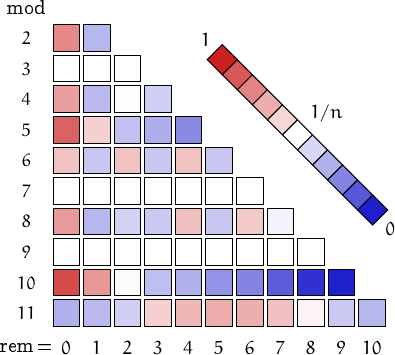The first 600 nialpdromes :
1, 2, 3, 4, 5, 6, 7, 8, 9, 10, 11, 20, 21, 22, 30, 31, 32, 33, 40, 41, 42, 43, 44, 50, 51, 52, 53, 54, 55, 60, 61, 62, 63, 64, 65, 66, 70, 71, 72, 73, 74, 75, 76, 77, 80, 81, 82, 83, 84, 85, 86, 87, 88, 90, 91, 92, 93, 94, 95, 96, 97, 98, 99, 100, 110, 111, 200, 210, 211, 220, 221, 222, 300, 310, 311, 320, 321, 322, 330, 331, 332, 333, 400, 410, 411, 420, 421, 422, 430, 431, 432, 433, 440, 441, 442, 443, 444, 500, 510, 511, 520, 521, 522, 530, 531, 532, 533, 540, 541, 542, 543, 544, 550, 551, 552, 553, 554, 555, 600, 610, 611, 620, 621, 622, 630, 631, 632, 633, 640, 641, 642, 643, 644, 650, 651, 652, 653, 654, 655, 660, 661, 662, 663, 664, 665, 666, 700, 710, 711, 720, 721, 722, 730, 731, 732, 733, 740, 741, 742, 743, 744, 750, 751, 752, 753, 754, 755, 760, 761, 762, 763, 764, 765, 766, 770, 771, 772, 773, 774, 775, 776, 777, 800, 810, 811, 820, 821, 822, 830, 831, 832, 833, 840, 841, 842, 843, 844, 850, 851, 852, 853, 854, 855, 860, 861, 862, 863, 864, 865, 866, 870, 871, 872, 873, 874, 875, 876, 877, 880, 881, 882, 883, 884, 885, 886, 887, 888, 900, 910, 911, 920, 921, 922, 930, 931, 932, 933, 940, 941, 942, 943, 944, 950, 951, 952, 953, 954, 955, 960, 961, 962, 963, 964, 965, 966, 970, 971, 972, 973, 974, 975, 976, 977, 980, 981, 982, 983, 984, 985, 986, 987, 988, 990, 991, 992, 993, 994, 995, 996, 997, 998, 999, 1000, 1100, 1110, 1111, 2000, 2100, 2110, 2111, 2200, 2210, 2211, 2220, 2221, 2222, 3000, 3100, 3110, 3111, 3200, 3210, 3211, 3220, 3221, 3222, 3300, 3310, 3311, 3320, 3321, 3322, 3330, 3331, 3332, 3333, 4000, 4100, 4110, 4111, 4200, 4210, 4211, 4220, 4221, 4222, 4300, 4310, 4311, 4320, 4321, 4322, 4330, 4331, 4332, 4333, 4400, 4410, 4411, 4420, 4421, 4422, 4430, 4431, 4432, 4433, 4440, 4441, 4442, 4443, 4444, 5000, 5100, 5110, 5111, 5200, 5210, 5211, 5220, 5221, 5222, 5300, 5310, 5311, 5320, 5321, 5322, 5330, 5331, 5332, 5333, 5400, 5410, 5411, 5420, 5421, 5422, 5430, 5431, 5432, 5433, 5440, 5441, 5442, 5443, 5444, 5500, 5510, 5511, 5520, 5521, 5522, 5530, 5531, 5532, 5533, 5540, 5541, 5542, 5543, 5544, 5550, 5551, 5552, 5553, 5554, 5555, 6000, 6100, 6110, 6111, 6200, 6210, 6211, 6220, 6221, 6222, 6300, 6310, 6311, 6320, 6321, 6322, 6330, 6331, 6332, 6333, 6400, 6410, 6411, 6420, 6421, 6422, 6430, 6431, 6432, 6433, 6440, 6441, 6442, 6443, 6444, 6500, 6510, 6511, 6520, 6521, 6522, 6530, 6531, 6532, 6533, 6540, 6541, 6542, 6543, 6544, 6550, 6551, 6552, 6553, 6554, 6555, 6600, 6610, 6611, 6620, 6621, 6622, 6630, 6631, 6632, 6633, 6640, 6641, 6642, 6643, 6644, 6650, 6651, 6652, 6653, 6654, 6655, 6660, 6661, 6662, 6663, 6664, 6665, 6666, 7000, 7100, 7110, 7111, 7200, 7210, 7211, 7220, 7221, 7222, 7300, 7310, 7311, 7320, 7321, 7322, 7330, 7331, 7332, 7333, 7400, 7410, 7411, 7420, 7421, 7422, 7430, 7431, 7432, 7433, 7440, 7441, 7442, 7443, 7444, 7500, 7510, 7511, 7520, 7521, 7522, 7530, 7531, 7532, 7533, 7540, 7541, 7542, 7543, 7544, 7550, 7551, 7552, 7553, 7554, 7555, 7600, 7610, 7611, 7620, 7621, 7622, 7630, 7631, 7632, 7633, 7640, 7641, 7642, 7643, 7644, 7650, 7651, 7652, 7653, 7654, 7655, 7660, 7661, 7662, 7663, 7664, 7665, 7666, 7700, 7710, 7711, 7720, 7721, 7722, 7730, 7731, 7732, 7733, 7740, 7741, 7742, 7743, 7744, 7750, 7751, 7752, 7753, 7754, 7755, 7760, 7761, 7762, 7763.
Distribution of the remainders when the numbers in this family are divided by n=2, 3,..., 11. (I took into account 3268744 values, from 1 to 999999999999999).
| n\r | 0 | 1 | |||||||||
|---|---|---|---|---|---|---|---|---|---|---|---|
| 2 | 2322951 | 945793 | 2 | ||||||||
| 3 | 1089748 | 1089498 | 1089498 | 3 | |||||||
| 4 | 1494119 | 322831 | 828832 | 622962 | 4 | ||||||
| 5 | 1972869 | 820250 | 320450 | 116400 | 38775 | 5 | |||||
| 6 | 774432 | 315251 | 774272 | 315316 | 774247 | 315226 | 6 | ||||
| 7 | 466977 | 466962 | 466964 | 466964 | 466961 | 466952 | 466964 | 7 | |||
| 8 | 907538 | 107713 | 292639 | 233683 | 586581 | 215118 | 536193 | 389279 | 8 | ||
| 9 | 363254 | 363166 | 363166 | 363247 | 363166 | 363166 | 363247 | 363166 | 363166 | 9 | |
| 10 | 1961241 | 817190 | 319770 | 116280 | 38760 | 11628 | 3060 | 680 | 120 | 15 | 10 |
| 11 | 38880 | 83512 | 202631 | 355784 | 494351 | 566280 | 544753 | 442156 | 300729 | 167596 | 72072 |
A pictorial representation of the table above

Imagine to divide the members of this family by a number n and compute the remainders. Should they be uniformly distributed, each remainder from 0 to n-1 would be obtained in about (1/n)-th of the cases. This outcome is represented by a white square. Reddish (resp. bluish) squares represent remainders which appear more (resp. less) frequently than 1/n.
e-mail: info -at- numbersaplenty.com • Privacy notice • engine limits